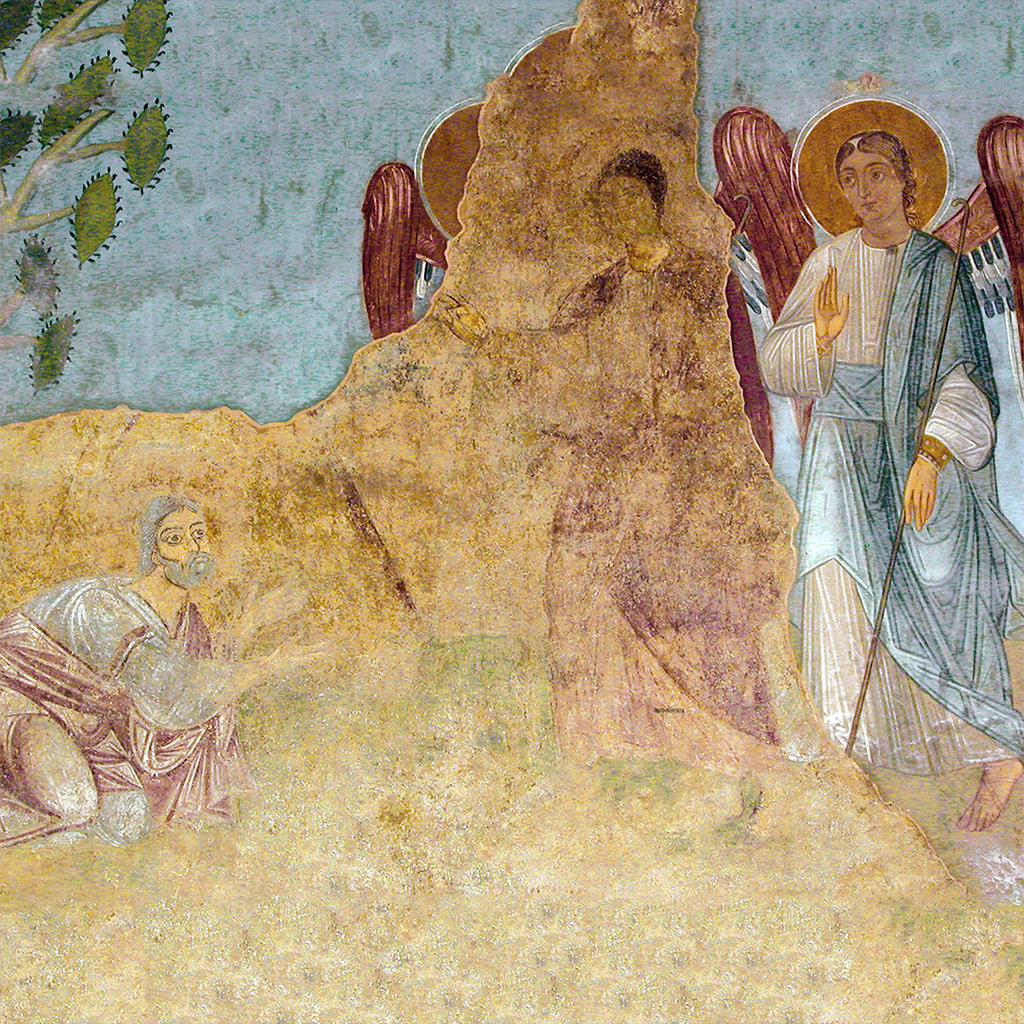Americans love their fantasy stories. From Frodo and Sam, to Luke and Leah, to Spiderman and his Avenger friends … we just can’t seem to get enough. So, perhaps it shouldn’t be surprising to see a similar fantasy story taking hold of the popular imagination these days about science itself.
It goes something like this: Once upon a time, there was this gnarly problem causing all sorts of confusion for everybody until an objective scientist—from a place of calm neutrality—began to bravely examine the available evidence using the rigorous tools of detached, rational inquiry. Thanks to years of specialized training and dedication, this scientist ensured outside bias did not interfere and therefore let the data speak for itself. In this way, the full truth independent of any prejudice was ultimately revealed. Hurrah!
Facetiousness aside, this characterization is not far off from the popular perception of science commonly heard in the public square today—and also not far off from many portrayals of science heard and shared in the academy (where people really should know better). Such a framing encourages Americans to direct their gaze toward scientists and the scientific method as the most reliable source of truth because of its promise of an unvarnished glimpse into reality itself.
You’ve heard it: “What does the science say? Have you heard about the latest scientific study? If we are ever to solve the problem of fill-in-the-blank, we must follow the science and keep politics and religion out of it!”
In this view, science speaks as a kind of oracle—communicating in a monolithic, impersonal voice the true reality of things. Our primary responsibility is simply to listen carefully to this trustworthy voice and then do all we can to follow where it leads. Increasingly, it’s only certain kinds of perspectives (especially religious ones) that are suspected of corroding the scientific process.
There are at least three things we would love for people to see and understand more clearly about science today:
1. Pure neutrality is a myth. Aspiring to fairness in our evaluations of people and the world— what Jesus called “righteous judgment”—is a challenging, yet noble pursuit. However, scientists and other professionals (doctors, therapists, historians) sometimes pretend to something even more special: being able to make observations from an objective and “value-free” stance in conclusions they offer patients, clients, and the public as a whole. The philosopher Thomas Nagel famously called this perspective the “view from nowhere” because the neutrality it presumes is only achievable through emotional, political, historical, moral, and cultural detachment. But this ultimately—and in principle—requires us to cease to be who we are and where we are. It is indeed an impossible self-dissolution.
It is little wonder though, that scientists and other professionals would favor such a view. It is, after all, a very powerful and persuasive stance to take, in reaching the many who are grappling to understand the truth about their own lives, and the world around them. “Why don’t we listen to someone able to approach this from an objective, neutral place? That way we don’t have to worry about any hidden moral or political or religious agenda muddying up the waters. And that way we can just get the straight truth that is fair and impartial to everyone and about everything.”
Isn’t that why we sometimes love all those scientific studies circulating around us? At last, a source we can trust! Readers of a certain age will recollect here the famous one-liner of Sergeant Joe Friday on the old Dragnet radio and TV series: “Just the facts ma’am,” as if it were possible to ever access just the facts untouched by context, perspective, and the constraints of the lived world itself.
From this vantage point, as long as a study is “scientific,” strong socio-political agendas at secular universities and enormous pharmaceutical revenues alike can be said to have little bearing on the studies conducted under their respective purviews. So long as the researcher is careful and employs the scientific method properly, then whatever data is produced is bound to be free of the taint of subjective bias or moral values, right?
Increasingly, it’s only certain kinds of perspectives (especially religious ones) that are suspected of corroding the scientific process. For instance, academic Michael Austin offered a critique of BYU’s recently renewed commitment to the Restored Gospel of Jesus Christ, arguing that such a commitment was “exactly the opposite of the norms of academic inquiry that most universities operate under.” After referencing the idea that “research be conducted without bias, and the results published, regardless of whether they confirm any particular hypothesis or doctrine,” Austin went on to argue that professors at Brigham Young were being pressured to embrace a very different approach—namely, that “academic research should begin with the desired conclusion in mind and either reach that conclusion or be dismissed.”
According to this view, scholars with religious perspectives are assumed to bear a unique challenge of potentially infecting their scholarship with unwarranted bias—distinct from other scholars operating from a secular perspective, who somehow avoid coloring their questions, methods, or interpretation of data with bias.
As long as we somehow separate religious perspectives from our scientific and scholarly endeavors, it is argued, a clear and unifying path to knowledge becomes available, one that avoids partisanship, divisiveness, and cultural or moral prejudice. All this sounds nice to secular ears—serving up as it does quite a pithy indictment of the work of faithful scholars and aims of religious universities anywhere.
The central problem with such a view of the nature of scientific inquiry is that it’s simply not true. Values, as well as cultural, political, and historical biases, are simply inescapable and are not the sorts of things that we can just put on a shelf, even temporarily, while we observe the world and report on it. They influence everything we do in science and scholarship, providing both the context and the reasons for doing what we do.
This understanding of the inescapability of values and biases in science is reflective of the consensus of most philosophers of science—and it’s no secret to scientists either. Anyone who has conducted an “RCT” (Randomized-controlled Trial), for instance—as we have—knows well the many hundreds of value-laden decisions going into the creation of the methodology behind a study.
From antidepressant research to LGBT+ issues, it’s remarkable the extent to which details of study design—how to organize control groups, what to measure (and not to measure), and which findings to emphasize (or not—have a substantial impact on the resulting story that gets told. Instead of a linear, mechanical process of accumulating evidence, then, research needs to be appreciated as a fundamentally human endeavor involving human interpretation, evaluation, and judgment (constantly and at every level). And operating from within a secular framework— the privileged position in the modern academy—is every bit as biased, value-laden, and rooted in pre-investigatory philosophical assumptions as would be the case if one were operating from a religious framework. To believe otherwise about the nature of science is to indulge an unsustainable secular mythology.
2. Data don’t speak for themselves. When data are reported, that’s when we love to say things like, “let’s see what the actual data show,” or “Tell us what we do and don’t know for sure based on the data.”
Once again, unfortunately, the primary responsibility of the public seems to be to just listen carefully to what the data means based on the authoritative and dispassionate explanation provided by a suitably trained expert. Rather than interpreting data, the role of the scientist is popularly understood as conveying to others what it is the data says “in and of itself.” Data derived from the scientific method is, as the story goes, just what it is. It is just objective fact, and, thus, is not derivative in any way from any act of interpretation, either in the collection or explanatory phase of research. At most, thoughtful scientists can provide a translation of the data into the less precise terms of everyday understanding in order to educate those who are not themselves scientists or otherwise insufficiently initiated into the technical language of scientific research.
Unfortunately, though widely believed, this story too is not true. No evidence ever spoke for itself—unaided by a human interpreter. Data is quite simply incapable of speaking for itself. Indeed, what is sought out as data, what is considered to count as data, the form that data takes, and how it is construed as being evidence for anything whatsoever is fundamentally a matter of human interpretation. That is to say, not only are the findings (i.e., the data) of scientific research interpretive in nature, but so too are the questions that guide, hypotheses that frame, and methods that produce such findings. The entire process of “science” is shot through with interpretation from beginning to end, and inescapably so. Values, as well as cultural, political, and historical biases, are simply inescapable and are not the sorts of things that we can just put on a shelf.
Compared to the image of a scholar carefully trying to “listen to the data,” this suggests more of a dialogue with the data. As paleontologist writer Brian Switek put it once to Doug Fabrizio on RadioWest, “Science isn’t ‘we found a fact, and we’re going to put it on the shelf, and now we know this, and now we’ll move on’—it’s this dance between fact and theory constantly going on. And the expectations you have going into something will influence the data you collect, how you interpret that data, how you think about that.”
None of this, however, is an argument for relativism, or meant to imply that everything is “subjective.” No, truth is real and the advancement of knowledge is possible, though it is not nearly as simple or straightforward a matter as the science-fantasy story we’ve come to love would suggest.
3. Science is a conversation. Rather than a simple revealer of truth, science is more accurately understood to be an ongoing argument, a conversation, a deliberation—a complex dialogue between thoughtful and good-hearted people all seeking truth, but reading the data differently, defining terms differently, emphasizing different indicators for determining what is true and trustworthy.
In this light, then, the idea that engaging in research from a religious perspective, one that takes the Restored Gospel seriously, is somehow intrinsically a corruption of good scholarship is wholly unfair. The idea that discussion of a religious perspective should be relegated to religion studies or theology departments, or to a weekly devotional, or to some off-campus Sunday School class so that scholarly work can avoid being tainted by such a perspective is naive, uninformed, and deeply misleading. Indeed, the claim that intellectual inquiry can be dispassionate and value-free, and that perspectives informed by one’s faith intrinsically corrupt basic scholarly ideals of objectivity, is an intellectual dinosaur whose extinction from our public conception of science is long overdue. It is kept alive at all only in those quarters of the academic and scientific world where the philosophy of science of the last century and a half has not penetrated. Contrary to the popular fantasy story so often told about science and scholarly inquiry, our current scientific conversation could only be deepened and made more vibrant if we not only permitted religious perspectives to guide our scholarly endeavors but also admitted that there are no good reasons to try and exclude them.
So, what does any of this mean on a practical level?
Well, for one, we propose this more complete understanding of science is actually far less divisive than its popular competitor—which has been leveraged as another way to slice up the American populace and sort it into tidy little boxes (e.g., rational human being versus “science denier”). For instance, author Roxane Gay suggested in the New York Times last year that “The country is starkly dividing between those who believe in science and those who don’t.”
Are you among the part of our country that believes in Science—and trusts it to guide our paths forward? Or are you one of those people who “ignore” or “reject” its edicts?
Many people take these kinds of black-and-white, dangerous bifurcations as an obvious reality. Let’s think twice about that.
Rather than waiting for Science to declare the truth of a matter—maybe we need to educate ourselves about what science is and what it is not—what it can do and what it cannot.
Of course, none of this implies that scientific investigation cannot continue to expand insight and facilitate “revelation” of things as they really are. Natural science is unsurpassed at improving human material well-being, and unlocking the workings of nature. This is what it was created to do. Our contention is that it is both unwise and unreasonable to claim, much less expect, that that same science will be equally adept or successful in matters of ethics, metaphysics, ontology, or praxis—that is, in matters of human being-in-the-world.
Given all this, rather than so often pretending our convictions are the only “scientific” ones—and pointing to someone in a lab coat with letters after their name to justify that, maybe it’s time to do something else: Recognize what we’re hearing as arguments—including those referring to data. Listening to them all as best we can, and then doing the hard work of deliberating together—openly, and without bitter accusation—to discern what is true and right—within the context of the lived world.
In the end, we believe our own discernment in consultation with those we find trustworthy is the underlying method we all must rely on to learn more and expand our horizons. That applies to all of us, yes, including those many scientists who can inform our conversations in many helpful ways.
Bottom line: We’ve all got to decide where we land on these important questions we’re facing.
And no one’s going to decide that for us.
Not even Science. Yes, science can supply some information, and even solve some problems for us but it cannot necessarily comprehensively address the question of “truth,” nor can it make decisions for us—especially in matters that reflect and affect our deepest humanity.

















